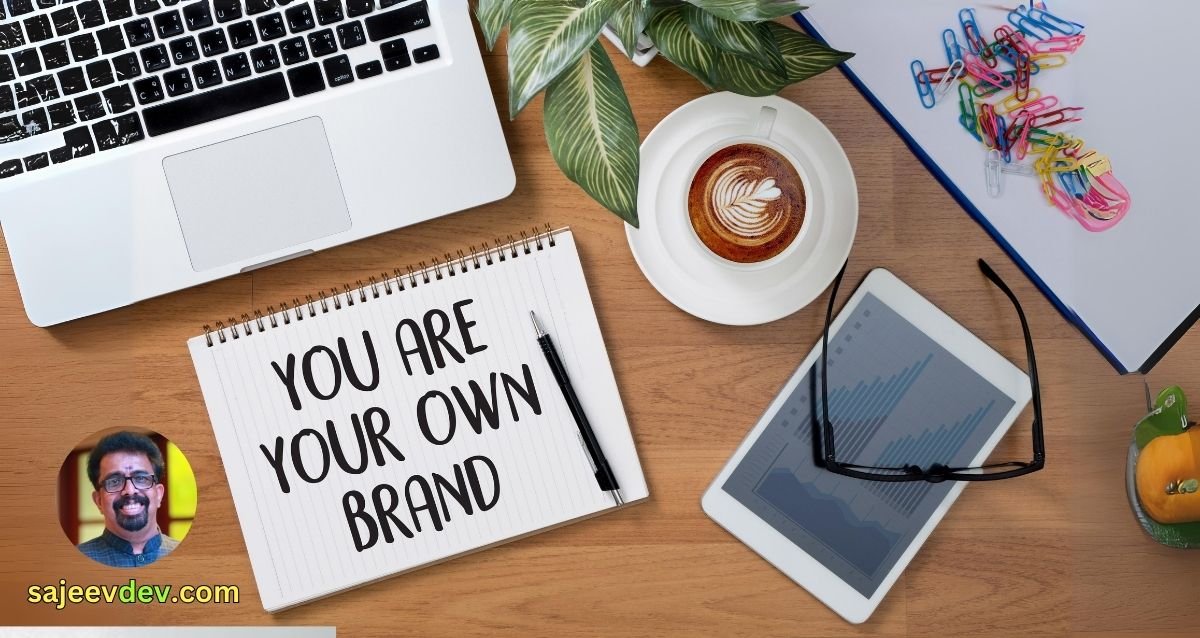The Abyss of Self-Misunderstanding
In today’s complex and fast-paced world, many individuals grapple with the profound issue of self-misunderstanding. Navigating the labyrinth of societal expectations, external opinions, and the shadows of past experiences, countless people find themselves adrift, uncertain of their true identity. This societal bewilderment often leaves individuals questioning their place in the world and their genuine self. They may find themselves working in careers they do not enjoy, engaging in relationships that do not feel authentic, or adhering to values imposed upon them rather than those that emanate from within.
The pervasiveness of self-misunderstanding cannot be understated. Societal norms and cultural paradigms continuously project ideals and standards that, more often than not, conflict with our intrinsic desires and values. From a young age, individuals are molded by the expectations of parents, educators, and peers, contributing to the entanglement of their personal identity with external perceptions. This confusion hinders self-awareness and stifles personal growth, leading to a life riddled with inner conflict and dissatisfaction.
However, amidst this chaos lies a crucial decision: one can either persist in living under the haze of self-misunderstanding or embark on a purposeful journey to discover and define their own identity. The pursuit of self-awareness is not merely an abstract concept but a deeply transformative process that can recalibrate one’s trajectory in life. Through reflection, mindfulness, and a willingness to confront uncomfortable truths, individuals can shed the layers of external influence and uncover their authentic selves.
The journey towards finding one’s true identity is akin to drawing your own box in a world eager to categorize you into predefined spaces. It necessitates a conscious and continuous effort to align your actions, thoughts, and values with your genuine self, ultimately leading to a more fulfilling and coherent life. This blog post will explore strategies and approaches to fostering self-understanding, encouraging readers to take the reins of their identity and craft a life that is truly their own.
Recognizing the Signs of Living in Confusion
Living in a state of self-misunderstanding can manifest in several subtle yet profound ways. One of the primary indicators is a persistent feeling of unfulfillment, even when engaging in activities that once brought joy or satisfaction. This internal discontent often stems from pursuing paths better suited to others’ expectations rather than one’s true self. For instance, an individual might excel academically or professionally yet sense a void, indicative of a deeper misalignment between their actions and their genuine desires.
Another prominent sign is the incessant need for external validation. People grappling with self-misunderstanding frequently look to others for approval and affirmation. This reliance can result in continually questioning one’s worth and capabilities based on others’ opinions, leading to a fragile sense of self-esteem. A scenario reflecting this might be someone who posts frequently on social media, seeking likes and comments as a measure of self-worth, yet feels empty and anxious when they do not receive the expected response.
A lack of direction and purpose is also symptomatic of living in a state of confusion. Such individuals may find themselves meandering through life without clear goals or a sense of meaning, which can sometimes lead to frequent job changes or shifts in personal interests. This can be particularly challenging, as it often culminates in a sense of stagnation and frustration with one’s progress in life.
Lastly, the habit of constantly comparing oneself to others can be a telling sign of self-misunderstanding. This comparison often breeds feelings of inadequacy and envy, detracting from one’s sense of identity and self-worth. For example, a person might frequently measure their accomplishments against peers, feeling they fall short and consequently experiencing diminished self-confidence and increased self-doubt.
These patterns and behaviors serve as red flags, hinting at a deeper need for introspection and self-discovery. By recognizing these signs, individuals can begin the journey toward finding their true identity and creating a life that genuinely resonates with who they are.
Understanding External Influences on Identity
The formation of our identities is profoundly influenced by external factors such as culture, family expectations, societal norms, and peer pressure. These elements can shape our perceptions, behaviors, and beliefs, often without our awareness. Culture, for example, provides a framework of values and principles that implicitly guide how we see ourselves and interact with the world. While culture can enrich our lives, it may also impose limitations on our individuality, nudging us towards conformity rather than personal expression.
Family expectations similarly play a pivotal role. From a young age, individuals are taught to adhere to familial norms and goals, which can significantly shape their future aspirations and self-perception. Families often have predetermined paths that they expect their members to follow, which can sometimes stifle personal ambition and lead to internal conflicts. A person’s true identity might be overshadowed by the desire to meet familial expectations, resulting in a misalignment between their inner self and outward behavior.
Societal norms further compound this issue. Society dictates a myriad of unwritten rules regarding acceptable behavior, career choices, and even personal values. Attempting to live in accordance with these norms can lead to a self that is crafted for social approval rather than personal satisfaction. Over time, the pressure to fit into these societal molds can erode one’s sense of self, making it difficult to distinguish between genuine personal desires and those inherited from social expectations.
Peer pressure exacerbates the challenge of maintaining an authentic self. This influence often manifests in subtle ways, such as adopting specific fashion trends, engaging in particular social activities, or altering one’s opinions to match those of friends. The desire to belong can be so powerful that it tempts individuals to compromise their true personalities, leading to a fragmented identity that is continually reshaped to gain acceptance from others.
These external influences, while sometimes positive, can also lead to a distorted understanding of who we are. Consistently aligning our identities with external expectations can obscure our true selves, making it imperative to consciously examine and understand these influences to draw our own box in a world of self-misunderstanding.
The Importance of Self-Reflection
In a world brimming with external influences and expectations, cultivating a practice of self-reflection serves as a vital tool in discovering your true identity. The process of self-reflection allows individuals to delve into their inner selves, exploring their values, passions, and what genuinely resonates with them, beyond societal norms and external pressures.
One effective technique for self-reflection is journaling. By dedicating time each day to write down thoughts, feelings, and experiences, one can unravel the nuances of their inner world. Journaling not only offers a written record of personal growth over time but also serves as a mirror, reflecting the values and beliefs that guide one’s actions and decisions.
Meditation is another powerful method for achieving deeper self-understanding. It provides a quiet space to calm the mind, allowing individuals to observe their thoughts without judgment. Through regular meditation, one can develop greater awareness of their mental and emotional landscapes, recognizing patterns that may otherwise remain unconscious. This clarity fosters a stronger connection with one’s core identity.
Self-inquiry exercises also play a pivotal role in self-reflection. These exercises involve questioning oneself with the intention of uncovering deeper truths. For instance, regularly asking questions such as “What do I truly enjoy?”, “What values are most important to me?”, and “What drives my actions?” can reveal insights that are often obscured by daily routines and external validation. By addressing these inquiries with honesty, individuals can strip away layers of pretence, leading to a more authentic existence.
Integrating these practices into daily life encourages introspection and personal growth. When individuals take the time to reflect on their inner selves, they become more attuned to their true identity, embracing what genuinely matters to them. This journey of self-discovery has the potential to liberate one from the confines of societal expectations, enabling the drawing of their own box in a world prone to misunderstanding.
Defining Your Own Values and Beliefs
In understanding and defining your true identity, reflecting on your personal values and beliefs is crucial. Values clarification exercises can serve as practical tools to elucidate what genuinely matters to you. Begin by listing activities, principles, and goals you find meaningful. As you compile this list, try to distinguish between intrinsic and extrinsic motivations. Intrinsic motivations are those that stem from your internal desires and interests, such as personal growth or altruism. On the other hand, extrinsic motivations are influenced by external rewards or validation from others.
Critically examining your motivations helps separate your authentic beliefs from those imposed by societal or familial expectations. Asking yourself probing questions can aid this discernment. For instance, consider whether you pursue certain goals because they resonate with your inner values or because they align with external expectations. Continual self-reflection will help you tease apart these driving forces, bringing clarity to your core convictions.
Another strategy to uncover your intrinsic values is to pay attention to moments when you feel deeply fulfilled or content. These instances often align with activities or principles that mirror your genuine values. For example, if teaching or mentoring provides you immense satisfaction, it’s a signal that contributing to others’ growth is a core value. Conversely, if you feel drained or indifferent after engaging in certain activities, it might indicate they are driven by external pressures rather than your authentic self.
Articulating your beliefs also involves recognizing and challenging any inherited values that no longer serve you. This process may be daunting as it requires confronting deeply ingrained beliefs. However, shedding these imposed values will pave the way for a more coherent and self-defined identity. Techniques such as journaling can assist in this journey, offering a safe space for exploring and validating your evolving beliefs.
Empowering yourself to define your personal values and beliefs is a liberating process. By distinguishing intrinsic motivations, questioning inherited values, and validating your genuine beliefs, you cultivate a resilient identity that stands independent of external influences. This foundational step is essential in the broader endeavor of finding and embracing your true self.
Setting Boundaries and Protecting Your Identity
In a world where self-understanding can often be elusive, the establishment of personal boundaries becomes indispensable in safeguarding one’s true identity. These boundaries are not mere barriers; they are essential frameworks that define and protect the essence of who you are. Establishing boundaries begins with an internal commitment to recognize and honor your value, preferences, and needs.
One of the most effective ways to protect your identity is by mastering the art of saying “no.” This simple, yet powerful, word serves as a protective shield against actions, situations, or people that could undermine your integrity and self-respect. Learning to say no with confidence enables you to prioritize your well-being over external pressures and expectations. It is crucial to remember that each no you assert reflects a yes to your own needs and aspirations.
Communicating your limits to others is another vital step in fortifying your identity. Clear, honest communication helps those around you understand your boundaries and respect your space. It is important to communicate these limits without guilt or apology. Utilizing “I” statements, such as “I feel” or “I need,” can emphasize your personal experiences and reduce the likelihood of defensive responses from others. By articulating your boundaries clearly, you carve out a space where your authentic self can thrive.
Creating an environment that supports your true self is equally significant. This involves curating a physical and emotional space that reflects your values and ambitions. Surround yourself with individuals who affirm your identity and share your principles. Engage in activities and hobbies that resonate with your authentic interests. Even the arrangement of your living or working space can play a role in nurturing your sense of self by providing comfort and inspiration.
By taking proactive measures to set boundaries, communicate limits, and cultivate supportive environments, you fortify the core of your identity. These actions are not acts of isolation but of preservation—guarding the unique, irreplaceable essence that defines who you are. In the journey of self-discovery, the establishment of boundaries serves as both a starting point and a continuous practice, ensuring that your true self remains protected and celebrated.
Embracing Your Authentic Self in Relationships
In both personal and professional environments, the quest for authenticity in all interactions is paramount. Knowing and embracing one’s true identity can significantly enhance the quality of one’s relationships, fostering trust and mutual respect. When individuals feel free to present their genuine selves, they create a foundation of openness that invites similar authenticity from others. This mutual authenticity paves the way for deeper, more fulfilling connections.
Authenticity in relationships begins with self-awareness. It involves a clear understanding of one’s values, beliefs, and needs. When people act in ways that align with their core values, they are more likely to attract individuals who resonate with those principles. This not only strengthens existing relationships but also encourages new connections built on a premise of mutual respect and common interests.
In professional environments, authenticity can manifest as transparent communication and integrity in one’s actions. Colleagues are more likely to develop trust and collaborative spirit when individuals are consistent in their words and deeds. Genuine interactions promote an atmosphere where creativity and innovation can flourish, as individuals feel respected and valued for their true selves. Additionally, leaders who exemplify authenticity in their roles often inspire and motivate their teams, fostering loyalty and enhanced productivity.
On a personal level, authenticity enables individuals to form meaningful relationships that are based on true compatibility rather than societal expectations or superficial traits. Being genuine involves expressing thoughts and emotions honestly, which helps to build a solid foundation of trust and empathy. Such connections are resilient; they withstand challenges and grow stronger over time, providing a sense of security and belonging.
To cultivate authenticity in relationships, it is essential to practice self-acceptance and vulnerability. Allow yourself to be seen and accepted for who you truly are, rather than conforming to external expectations. Engaging in open dialogue, setting clear boundaries, and actively listening are practical strategies to foster authenticity. By embracing your true identity and encouraging others to do the same, you create an environment where relationships can thrive, leading to a more fulfilling and harmonious life.
The Ongoing Journey of Self-Discovery
In the modern era, where societal norms and external expectations often overshadow personal ambitions, it is imperative to prioritize the journey of self-discovery. This process is not static but a continuously evolving journey that brings clarity, purpose, and intrinsic satisfaction. The pursuit of identifying one’s true self requires courage, introspection, and a willingness to break free from predefined molds.
Self-awareness forms the cornerstone of defining your identity. It acts as a compass, guiding you through life’s myriad choices and challenges. By embracing self-awareness, you can mitigate the confusion that arises from trying to conform to the expectations of others. Understanding your values, strengths, and aspirations enables you to create a path that aligns with your authentic self.
Continuous growth is another essential element of drawing your own box. The quest for self-discovery does not conclude once you have a moment of clarity; rather, it requires constant refinement and reassessment. Life’s experiences, both positive and negative, shape your perception and contribute to personal growth. Embracing change and receptiveness to new insights are critical steps in evolving your identity.
Actionable steps towards living authentically involve setting personal goals that resonate with your inner beliefs and passions. Regular reflection and self-assessment can help ensure that your actions align with your true self. Additionally, surrounding yourself with supportive individuals who encourage self-growth and authenticity can significantly aid in maintaining this alignment.
There will be times when self-doubt and external pressures may cloud your judgment. Yet, it is during these moments that reconnecting with your core values and aspirations becomes vital. Trust in your journey and the ongoing process of self-discovery. Each step, no matter how small, is a move towards a life that is genuinely reflective of who you are.
Ultimately, the path to finding your true identity is a lifelong endeavor. Embrace the journey with patience, openness, and resilience. By continuously exploring and defining who you are, you pave the way for a fulfilling and authentic existence. Remember, the power to draw your own box lies within your hands.



